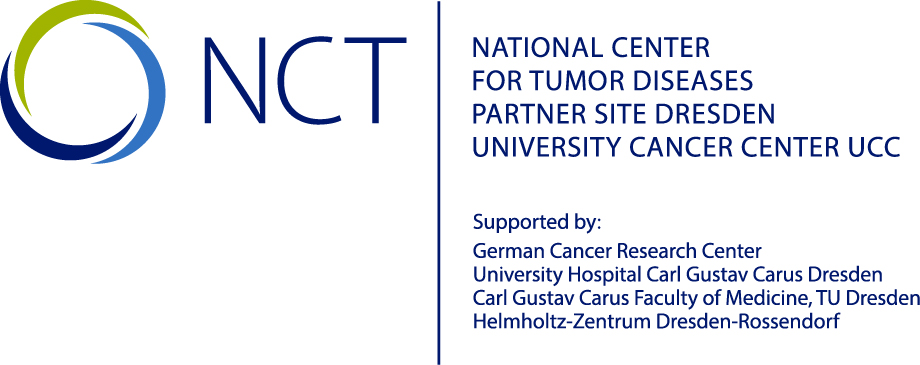Tumor cells can dodge the immune system in various ways. These evasion mechanisms are to be specifically deactivated by using modern immunotherapy. For this purpose scientists at the NCT are developing various strategies. These are aimed, among other things, to change the tumor environment, to actively direct T cells to the tumor cells, to strengthen the immune response by vaccinations or, to genetically engineer T cells with an artificial receptor in order to direct them to a precisely defined antigen (CAR-T cell therapy).
In Dresden, one focus is on the development of the so-called UniCAR technology - a further development of CAR-T cell therapy, which is currently one of the most promising approaches in immunotherapy. In CAR-T cell therapy, an artificial molecule "CAR" ("chimeric antigen receptor") is inserted into the T cells - white blood cells of the immune system - which like a navigation system guides the cells to certain surface characteristics of tumor cells. In the so-called UniCAR system, however, the modified T cell does not bind directly to the tumor cell. Rather, a special binder (target module) is placed between the immune cell and the cancer cell to enable the binding and thus the immune response in the first place. Since the artificially generated target modules are short-lived, the activity of the T cells can be controlled via the given target module dose and the risk of serious side effects can be significantly reduced.
Another focus in Dresden is on the development of so-called bispecific antibodies. The principle is similar to that of a Lego brick, which can be connected to other bricks on both its upper and lower sides: Artificially generated bispecific antibodies can bind with one end to a surface molecule of a cancer cell and with the other end to structures in the membrane of certain immune cells, also called T cells. This acts as a connecting bridge and allows T cells to attack the cancer cell, e.g. a leukaemia cell, in order to destroy it. The immune system cannot recognise the cancer cells as enemies without such artificial help. By using a suitable bispecific antibody, it is again able to actively fight the cancer.







